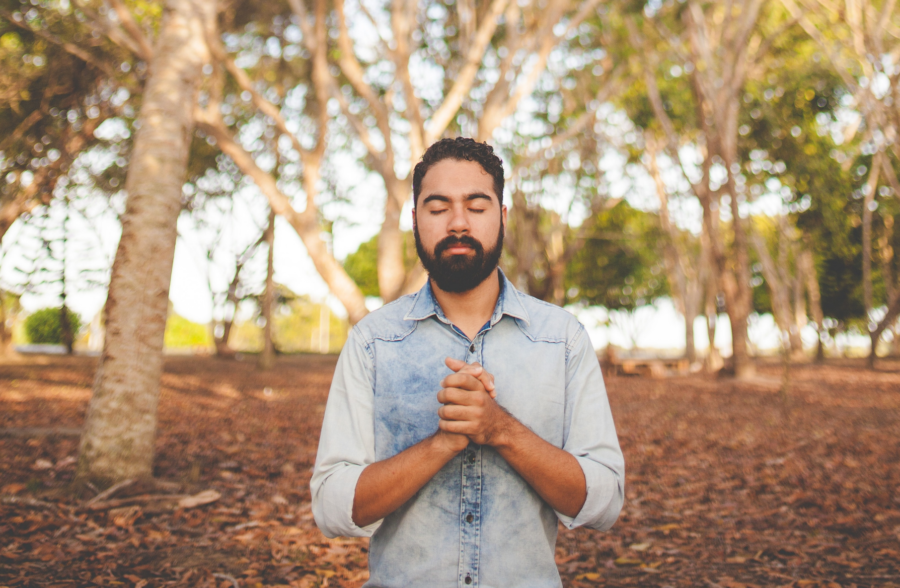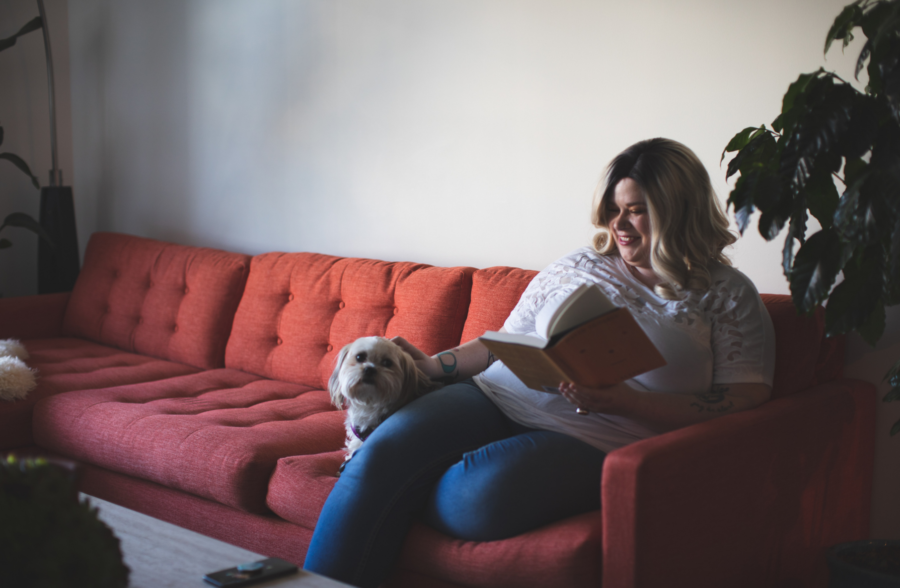How to support your friends and family during lockdown

COVID-19 has brought on unprecedented challenges for all of us and while we are sitting in so much uncertainty one of the best things we can do is to reach out, connect and care for each other. But sometimes that is easier said than done, if you know someone who is having a tough time, it can be really hard to know what to say or do, especially if you’re physically apart.
To help, we’ve asked five psychologists from The Mind Room team to share their practical tips for how we can reach out and support our friends and family.
Dr Hayley Matic, Health Psychologist
Remember the days of the ‘bump in’…those unplanned moments of social interaction that leave you smiling and feeling connected? We are all missing the buzz of novelty right now – so much of lockdown life is predictable and planned. We even schedule our phone calls and video catch-ups with friends and family to ensure we stay in touch. This is great but our social brains also crave the unexpected – it makes us feel good! Random social contact is a perfect way to deliver a hit of happiness to our friends and family during this tough time. So next time you think of someone, surprise them with an unplanned phone call. Send an audio message, or better yet, a video message. Mix it up. Increase the amount of human in your connection attempts and stop texting. Show the people you care about that you’re holding them in mind by intentionally ‘bumping into’ them, lockdown-style.
Greta Bradman, Psychologist
When someone you care for is suffering, it’s tempting to launch into problem-solving, ‘fixing’ mode. In ‘fixing’ their problem, you wager, you’ll remove their suffering, leaving them (and you) feeling better. But suffering seldom results from simple problems that are easily fixed and chances are you don’t have the ultimate solution to offer them. And – most importantly – it’s likely that what they need the most from you is someone to sit with, listen and feel alongside them for a while. That is, someone to validate and empathise with their emotional experience. And so, my tip would be – don’t let any thoughts or feelings around “I can’t fix this” or “I should fix this” get in the way of simply being there for them. Park ‘fixing’ mode alongside judgment at the door. Offer yourself, empathy first (and perhaps with a warm cuppa in hand). Because when it comes down to it, showing up and being there warts and all – without any answers or solutions – willing to listen openly, love and accept them, is some of the greatest support you can offer.
Dr Jo Mitchell, Clinical Psychologist
I asked my nephew for advice on this topic and his suggestion was “I dunno [default teenager response]” followed by “play a video game with me”. So we did, and I felt better after as well. I asked my sister the same question and she said “family quiz night”. My brother said going running and then sharing his run on Strava with friends and family kept his stress in check. My friend Gillian just wanted to chat and share photos of past holidays. My takeaway from all of this is that other people know what they need, and we just have to ask. It takes a lot of the guesswork out of what I can do to meaningfully support the people that matter in my life – so now I make sure I give kudos to my brother for his 5km run, that I post a photo of the trip we did to Portugal two years ago to Gillian, and I turn up each week for family quiz. Even though I never win.
Dr Jarrod White, Clinical Psychologist
I was listening to the Ezra Klein podcast where he was interviewing Jenny Odell, the author of How To Do Nothing, on how to enjoy beauty right now. She mentioned it can be helpful to shift our focus to what we might not notice ordinarily, because ordinarily we have ‘a lot going on’. This made me think about what we so readily notice in our family and friends when they are struggling. We focus on the problem and want to help them, be there, take their problem away and guide them where to go for help. When there is ‘a lot going on’ for someone, it can be so easy to lose sight of who they are beyond the struggle. At this time however, when there are so many limitations on our ability to be present with others, supporting family and friends can be found in shifting our focus to the person as a whole. Random acts of kindness, little contributions and tiny gestures linked to their interests, their passions, their likes can be helpful and, especially now, beauty in relationships can be cultivated.
Michael Inglis, Sport and Performance Psychologist
Sharing outdoor experiences is a great way to connect. One of the more inspiring parts of lockdown is to see how adaptable people have become in exploring the outdoors in their local area. Bike shops have reported that they can’t not import bikes fast enough to keep up with the demand. In a time where we associate ‘lockdown’ as being ‘stuck indoors’, valuing walking tracks and mountains as well as bike paths has been a new past time in our community. Sharing these trails and experiences with photos and information via social platforms connects us in our experiences of the day. Furthermore, it gives people in our community an experience they can try or look forward to the next day. Outdoor activities keep our body moving, our minds active and our social connections curious to the beautiful nature around us.
If you need support, we’re here for you. You can call our Front of House team to book in an appointment on (03) 9495 6261. If you need more immediate support, you can phone Lifeline on 13 11 14.




